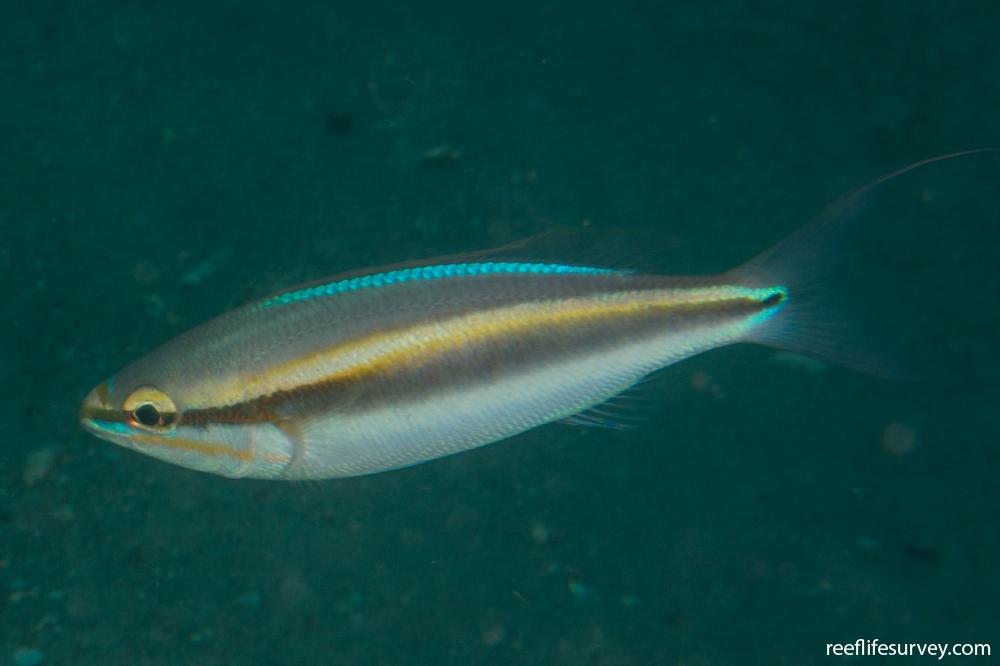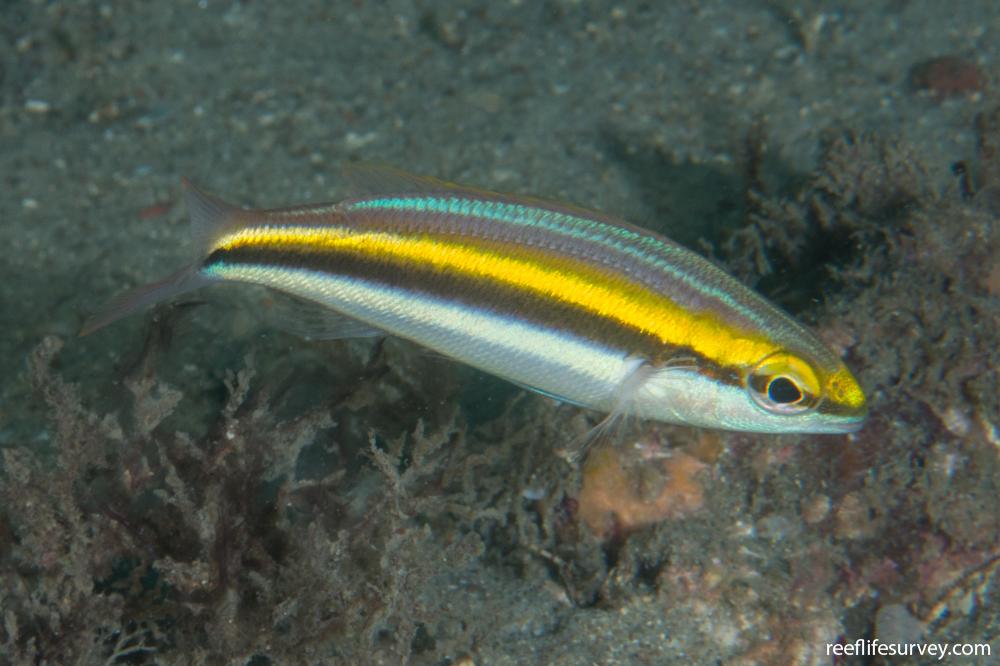Pentapodus paradiseus
Paradise Threadfin Bream | Blue-banded Whiptail | Blue-faced Whiptail | Butterfly Bream | Long-tail Perch | Paradise Butterfish | Paradise Whiptail | Paradise-fish | Rainbow Paradise FishSimilar Species
Same Genus
Distribution
Temperate Australasia, Tropical Indo-Pacific
Description
Pearly body with iridescent blue and yellow stripes on face, iridescent blue stripe on back below dorsal fin and an iridescent blue and yellow stripe from behind eye to tail base where it wraps around a small black dot. Juveniles with a black, yellow and white triple stripe from snout through eye to tail and several other less distinct stripes on back and belly. Differs from P. porosus (Northwest Threadfin Bream), from western and northern Australia, and P. setosus, from SE Asia, primarily by location.
Information
Max Size: 30 cm
Sea Temperature Range: 16.2-30.5°C
Depth: 5-70m
Habitat Generalization Index: 2.54
Also referred to as the SGI (Species Generalisation Index), this describes the habitat niche breadth of the species. Species with values less than 15 are found in a relatively narrow range of reef habitat types (specialists), while those over 25 may be found on most hard substrates within their range (generalists). Learn more here.
Conservation and Rarity
IUCN Status: Not Evaluated
Occurrence: Infrequent (2.5% of sites)
Occurrence describes how often the species is found on surveys within its distribution. It is calculated as the % of reef sites surveyed by RLS divers across all the ecoregions in which the species has been observed
Abundance: Few (5 per transect)
Abundance is calculated as the average number of individuals recorded per RLS transect, where present.
Edit by: RD Stuart-Smith, GJ Edgar, AJ Green, IV Shaw. 2015. Tropical Marine Fishes of Australia. Reed New Holland
















